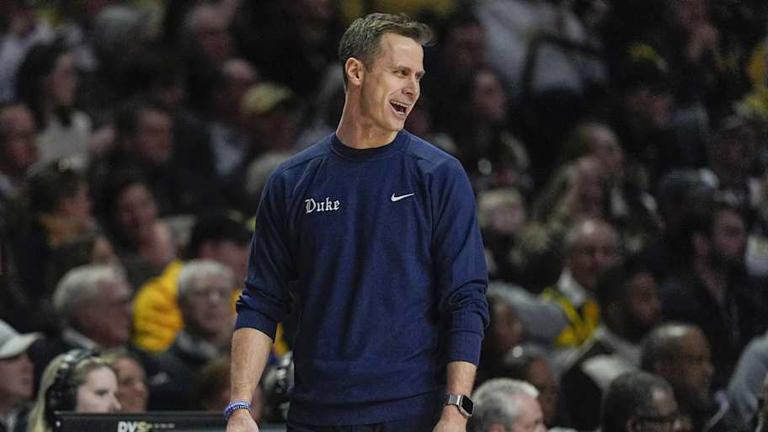Duke basketball has long been synonymous with excellence, tradition, and national championship aspirations. Under the leadership of legendary coach Mike Krzyzewski and now the promising stewardship of Jon Scheyer, the Blue Devils continue to command respect as one of the premier programs not only in the Atlantic Coast Conference (ACC) but across the entire NCAA landscape. As the upcoming college basketball season approaches, anticipation and analysis abound about where Duke will stand among its ACC rivals. Recently, a prominent college basketball analyst—known for his keen insight into ACC basketball dynamics—has predicted that Duke will finish second in the conference this season.
This forecast is both intriguing and significant, reflecting the evolving competitive balance within the ACC and signaling that Duke remains a dominant force, though not quite at the very top. This article explores the context behind this expert prediction, the current state of the Duke basketball program, the strengths and challenges facing the Blue Devils, and what it means for the ACC landscape going forward.
Duke basketball’s reputation is built on sustained success, boasting multiple NCAA championships, a tradition of recruiting top-tier talent, and a legacy of producing NBA-caliber players. The program’s recent seasons have been marked by steady progress under Scheyer, who took over the reins following the retirement of Coach K after the 2021-2022 season. Scheyer has infused the team with a fresh energy and a modern approach to recruiting and game strategy, while also maintaining the high standards of excellence that define Duke basketball.
The ACC itself is widely regarded as one of the most competitive conferences in college basketball. With perennial powerhouses like North Carolina, Florida State, Virginia, and Miami consistently challenging for the top spot, the race for ACC supremacy is always tightly contested. The expert’s prediction of Duke ranking second, therefore, is an acknowledgment of the strength of other programs in the conference, as well as a recognition that Duke’s path to the top will require overcoming stiff competition.
One major factor influencing this prediction is the roster composition of Duke this season. While the Blue Devils have continued to recruit outstanding talent, including several five-star recruits and highly ranked transfers, they are also facing some departures and uncertainties that could impact team chemistry and performance. Key players from last season have either graduated, declared for the NBA draft, or transferred, which means the coaching staff must integrate new faces quickly and effectively.
Among the incoming class, Duke boasts impressive recruits who bring a mix of athleticism, skill, and versatility. These freshmen are expected to contribute immediately, but as is often the case with young teams, consistency and experience in high-pressure ACC matchups can be a challenge. The expert’s projection takes into account the typical learning curve for freshmen, balanced against the overall talent level and coaching acumen at Duke.
Additionally, the Blue Devils benefit from a core of returning players who have demonstrated resilience and leadership. These veterans will play a crucial role in anchoring the team, providing stability on both ends of the floor, and mentoring the younger players. The expert noted that the leadership dynamics within the team will be pivotal to Duke’s success, especially when facing tough road games against ACC rivals known for their physicality and tactical discipline.
The coaching philosophy under Jon Scheyer emphasizes pace and space, with an emphasis on three-point shooting and versatile defense. This style fits well with the skill sets of the current roster, which includes players capable of stretching the floor and defending multiple positions. The expert highlighted that Duke’s ability to execute this system effectively could give them an edge over other ACC teams, particularly in close games where offensive efficiency is paramount.
However, the prediction of finishing second also reflects some skepticism about Duke’s ability to dethrone the projected top ACC team this season. While the expert did not explicitly name the team expected to finish first, clues point toward a program with a deep, experienced roster, perhaps one that has shown remarkable consistency and resilience in recent years. This suggests that while Duke will be a major contender, they might fall just short of the conference title, making for an exciting race that could come down to head-to-head matchups late in the season.
The ACC’s depth also plays a role in this prediction. Unlike some conferences where one or two teams dominate, the ACC is known for its parity beyond the elite programs. Teams like Clemson, Virginia Tech, and Louisville have made strides in recruiting and player development, capable of pulling off upsets and challenging the traditional powers. This increased competition means Duke cannot afford lapses in focus or performance throughout the long conference schedule.
Furthermore, the expert’s projection underscores the importance of health and injury management. College basketball seasons are grueling, and teams with greater depth often have an advantage when key players are sidelined. Duke’s ability to maintain player health and utilize its bench effectively will be tested, especially against ACC teams that have bulked up their rosters with experienced contributors.
From a broader perspective, this second-place prediction also signals that Duke remains in the conversation as a national contender. Finishing near the top of a conference as competitive as the ACC generally translates into a high seed in the NCAA Tournament, which is a critical factor for any team aspiring to make a deep March Madness run. The expert’s assessment suggests that Duke has the tools to reach the upper echelons of college basketball once again but will need to navigate a challenging path filled with formidable opponents.
Recruiting remains a cornerstone of Duke’s sustained success, and the program’s ability to attract elite talent continues unabated. The Blue Devils’ reputation, coupled with their recent embrace of modern NIL (Name, Image, and Likeness) opportunities, helps keep them competitive against other basketball powerhouses. This ensures that while this season’s team might face challenges, Duke’s pipeline of talent remains strong, promising continued success in future seasons.
In terms of style of play, Duke’s blend of speed, shooting, and defensive versatility aligns well with the current trends in college basketball. The expert noted that teams who can push tempo, shoot efficiently from beyond the arc, and switch defensively will have an advantage in the ACC’s evolving landscape. Duke’s roster composition and coaching approach fit these criteria, meaning they are well-positioned to adapt to the competitive environment.
Moreover, the expert’s prediction also reflects the intangible factors that often influence a team’s performance: team chemistry, leadership, and resilience. These qualities are harder to quantify but can make a significant difference, especially in close games and critical moments. Duke’s program culture, built over decades of success, typically fosters these traits, but the integration of new players and the pressures of expectations could test the team’s unity.
For fans and analysts alike, the projection of Duke finishing second in the ACC invites a narrative of redemption and motivation. It sets up a season where the Blue Devils will aim to prove the experts wrong and reclaim their position at the summit of the conference. Rivalries with teams like North Carolina and Virginia will take on added significance, as these matchups could be decisive in determining the final ACC standings.



